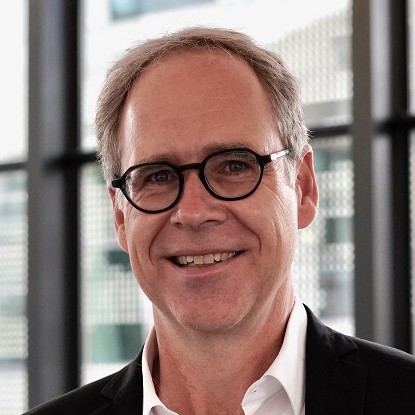“An exciting and varied combination”
Doctoral student Theresa Nolte on her medical technology studies – fifth and final part of a series
2025/10/21
While searching for an application-oriented engineering degree programme, Theresa Nolte came across medical technology. In this interview, the 27-year-old, who graduated in 2024, talks about what particularly motivated and surprised her during her studies.

If you had to explain the medical technology degree programme in one sentence, what would it be?
Theresa Nolte: As the name suggests, the medical technology degree programme is an exciting and varied, but also, challenging combination of electrical engineering and medicine, with a clear focus on electrical engineering around 80 per cent.
Why did you decide to study medical technology?
I always found maths and physics exciting at school, but I wanted to study something that was more application-oriented. The applications of pure engineering sciences didn't appeal to me as much. But when I met students studying medical technology at a trade fair, I knew that this was the right thing for me.
What was the biggest surprise for you when studying medical technology?
I was particularly surprised by the solidarity among the students. I had heard from other degree programmes that there can be a lot of competition, but here I only ever saw people helping and supporting each other. Another surprise was how much I enjoyed programming – far more than I had expected!
What was your coolest and what was your most bizarre experience during your studies?
My coolest experience was getting to know my fellow students, who later became really good friends and greatly enriched my time at university. My most bizarre experience was also cool – namely, observing an operation in Frankfurt. Watching it was very abstract, but at the same time extremely exciting.
Recommended external content
We have selected external content from YouTube for you and would like to show it to you right here. To do this, you must reveal it with one click. You can hide the external content at any time with another click.
I agree to external content from YouTube being shown to me. This may result in personal data being transmitted to third-party platforms. You can find more information in our Privacy Policy.
How important was the medical component of your studies in Frankfurt?
The medical component repeatedly showed me why I was studying all these electrical engineering subjects. It quickly became apparent where we, as medical technicians, could help make work easier or improve patient care with good solutions. That always motivated me a lot.
What advice would you give to first-year students or newcomers?
I wouldn't have done so well in my studies without my friends. On my own, I think I would have despaired at times, but together we were always able to help and motivate each other. So find people you get along with and can study alongside!
What did you do besides studying?
Since my third semester, I have been a tutor almost every semester or have worked as a student assistant in the learning centre. Being able to help other students helped me academically by reviewing the material and was also a lot of fun personally. Besides my studies, finding a balance through university sports was always important to me.
What are your career plans, and are they the same as when you started your studies?
Since January 2025, I have been doing my doctorate in the field of KIS*MED – Artificial Intelligent Systems in Medicine. I already had a doctorate in mind at the beginning of my studies, but I wasn't quite sure whether it was right for me it at the time. However, I don't know exactly what I want to do after my doctorate.
The questions were asked by the Communications Team of the Department of Electrical Engineering and Information Technology (etit) at TU Darmstadt.
Facts and figures
The RMU cooperative degree programme Medizintechnik at a glance
- 132 – degrees awarded since the programme startet in the winter semester of 2018/19
- 256 – Number of bachelor's degree applications (winter semester 2024/25) for 120 slots
- 144 – Number of master's degree applications (winter semester 2024/25)
- 50,9 percent – Proportion of women in the bachelor's degree programme (winter semester 2024/25)
- 58,8 percent – Proportion of women in the Master's programme (winter semester 2024/25)
- 42 – Students spending time abroad (winter semester 2024/25);most popular destinations: Great Britain, Ireland, Scandinavia










